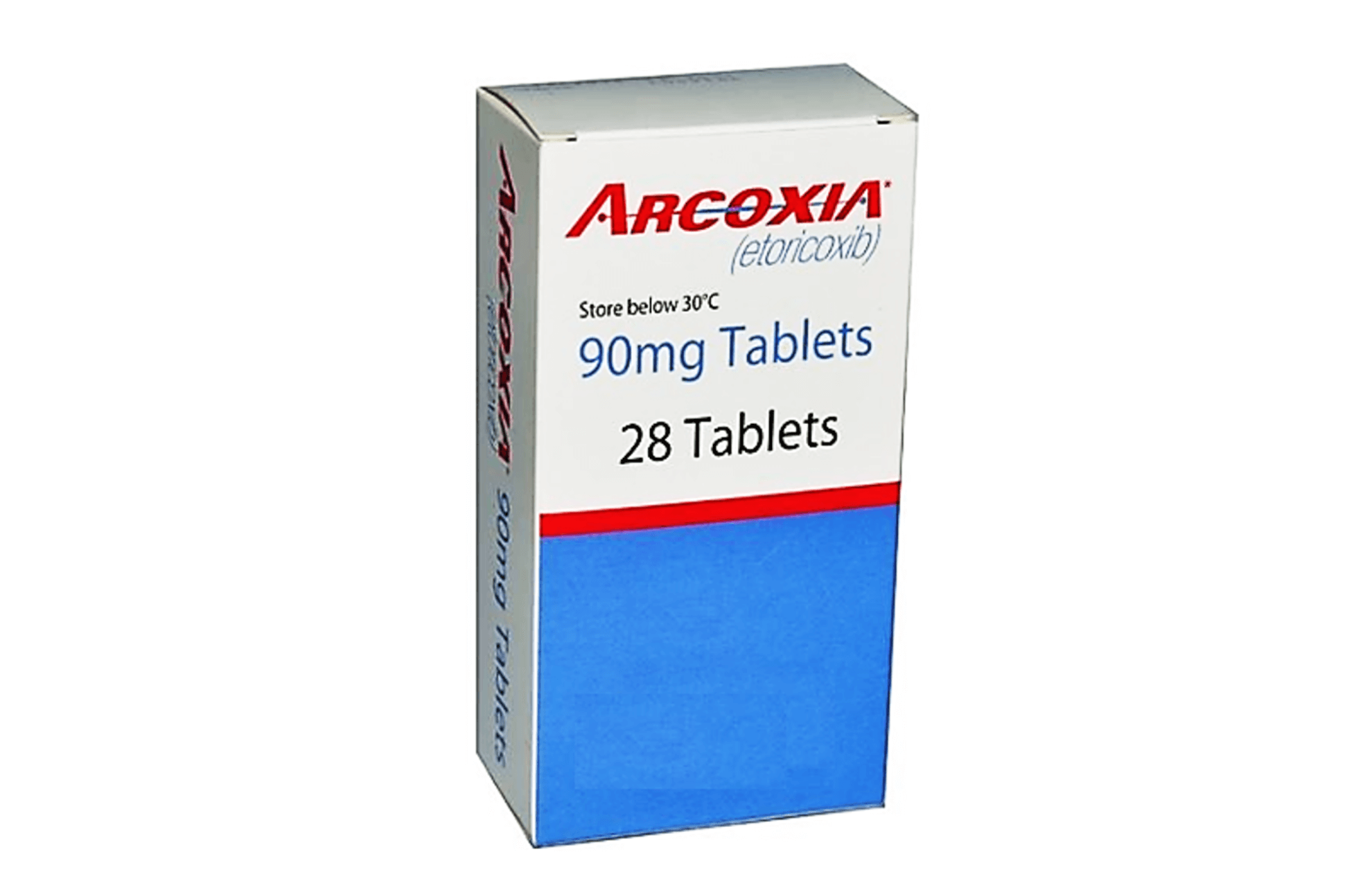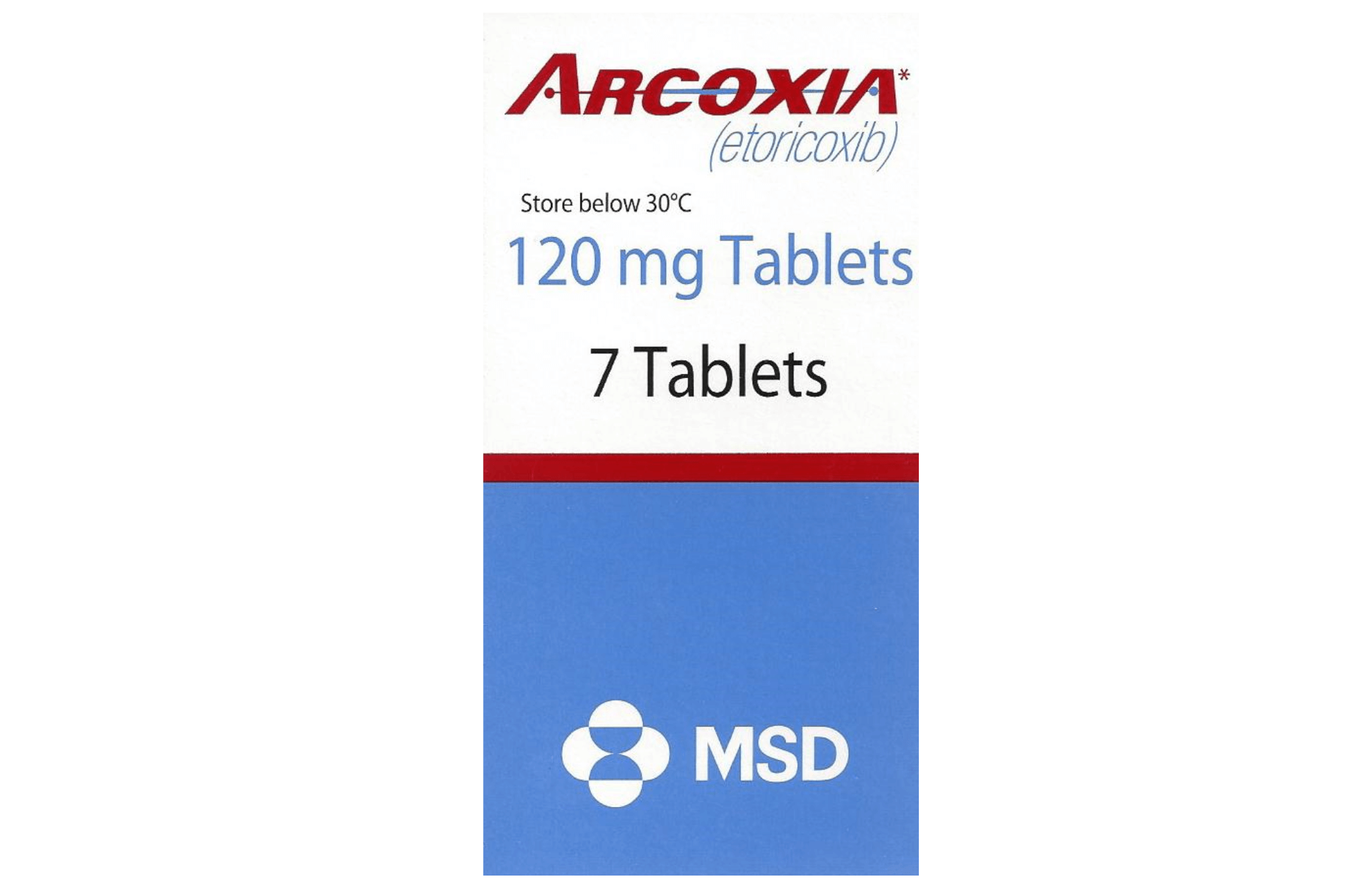Arcoxia (
generic name: etoricoxib) is a prescription medication belonging to the class of
selective COX-2 inhibitors, a subgroup of non-steroidal anti-inflammatory drugs (NSAIDs). It is used to reduce
pain and
inflammation associated with various musculoskeletal and inflammatory conditions. By specifically targeting the COX-2 enzyme, it helps alleviate symptoms while minimizing gastrointestinal side effects commonly associated with traditional NSAIDs.
Arcoxia is indicated to:
- Relieve joint pain and improve mobility for people with osteoarthritis.
- Reduce inflammation, stiffness, and joint damage for people with rheumatoid arthritis
- Treat ankylosing spondylitis, an inflammatory condition of the spine.
- Manage the intense pain and swelling of gout attacks in cases of acute gouty arthritis..
- Provide short-term relief of pain after dental surgery.
Dosage
The usually prescribed dose of Arcoxia depends on the condition being treated:
- Osteoarthritis: 30 mg or 60 mg once daily.
- Rheumatoid Arthritis: 60 mg or 90 mg once daily.
- Ankylosing Spondylitis: 60 mg or 90 mg once daily.
- Acute Gouty Arthritis: 120 mg once daily for not more than 8 days.
- Post-Dental Surgery Pain: 90 mg once daily for a maximum of 3 days.
Arcoxia should be taken only according to the prescribing doctor’s instructions. It can be with or without food. Use the lowest effective dose for the shortest duration necessary to control symptoms. If a dose is missed, take it as soon as possible unless it is near the time for the next dose; do not double-dose to make up for a missed dose.
Storage
Arcoxia should be stored in a cool, dry place below 30°C (86°F). To protect the tablets from moisture, keep them in their original packaging.
Common Questions About Arcoxia
What are selective COX-2 inhibitors?
Selective COX-2 inhibitors are NSAIDs that specifically target the COX-2 enzyme, reducing pain and inflammation with less gastrointestinal irritation.
How does Arcoxia help in osteoarthritis?
Arcoxia reduces joint pain and swelling in osteoarthritis by decreasing inflammation, helping improve joint function and mobility.
Can Arcoxia be used during a gout attack?
Yes, Arcoxia 120 mg is specifically indicated for short-term use during acute gout attacks to relieve pain and swelling.
Does Arcoxia help with back pain?
Arcoxia may be used for certain types of back pain associated with inflammation, such as ankylosing spondylitis.
What are selective COX-2 inhibitors?
Selective COX-2 inhibitors are NSAIDs that specifically target the COX-2 enzyme, reducing pain and inflammation with less gastrointestinal irritation.
This text is for informational purposes only. Please consult a doctor or pharmacist before using any medication.
Read the information leaflet that comes with the medication.
If a sudden allergic reaction (anaphylaxis) occurs after taking Arcoxia with symptoms like swelling of the face, tongue, or throat making it difficult to breathe or swallow, or there is wheezing, hives, rash, blistering, or peeling of the skin, call a doctor or 911 right away, or go to an emergency room immediately.
Most people who use Arcoxia do not experience any adverse side effects. Doctors prescribe this medication because they assess the benefits of such treatment outweigh any likely unwanted effects.
Some of the side effects that have been reported include stomach pain, dizziness, nausea, headache, swelling due to fluid retention.
Arcoxia is not usually recommended during pregnancy or while breastfeeding due to potential risks to the fetus or infant.
Not all side effects are listed here. If these or other unlisted symptoms persist or worsen, consult a healthcare provider or pharmacist.
The main conditions that are treated by Arcoxia include:
Osteoarthritis:
A degenerative joint condition characterized by the breakdown of cartilage. Symptoms include joint pain, stiffness, and swelling. Arcoxia helps reduce inflammation and improve joint function.
Rheumatoid Arthritis:
An autoimmune disease causing chronic inflammation of joints. Symptoms include severe pain, swelling, and deformity. Arcoxia alleviates pain and slows disease progression.
Ankylosing Spondylitis:
A form of arthritis that primarily affects the spine, leading to pain and stiffness. Arcoxia helps manage inflammation and improve flexibility.
Acute Gouty Arthritis:
It is caused by uric acid crystal deposition in joints, leading to intense pain and swelling. Arcoxia offers short-term relief during gout attacks.
Post-Dental Surgery Pain:
Moderate to severe pain following dental procedures. Arcoxia provides effective short-term pain management.















